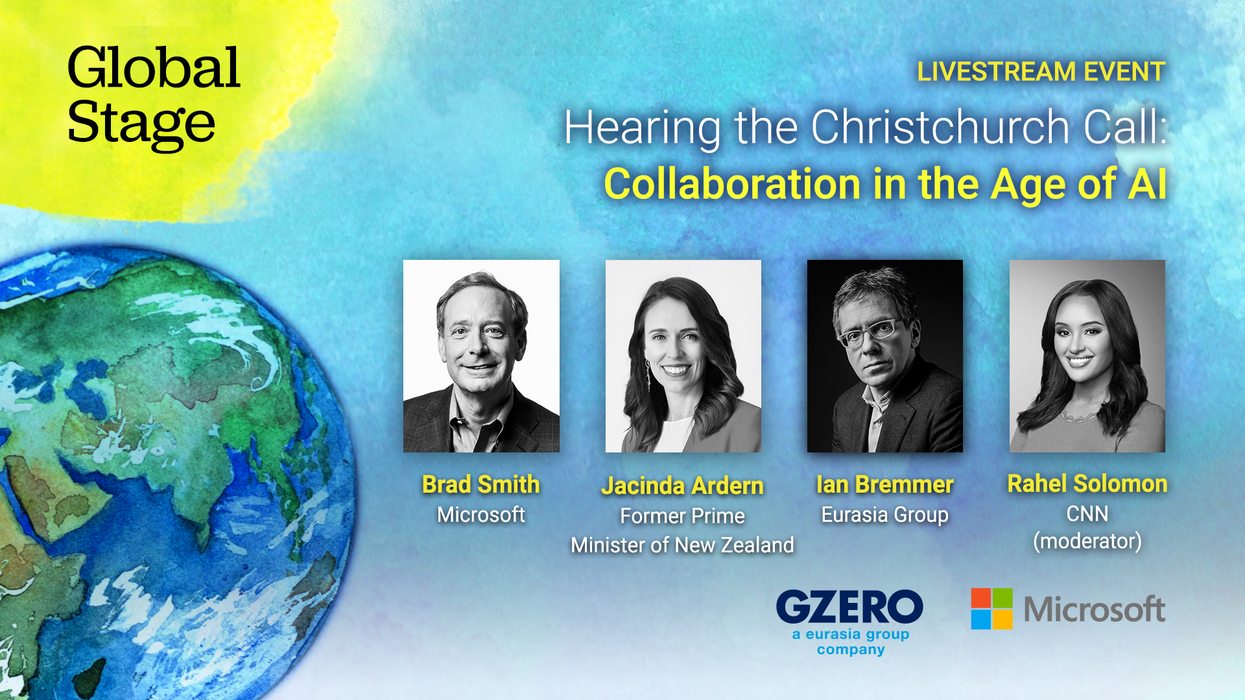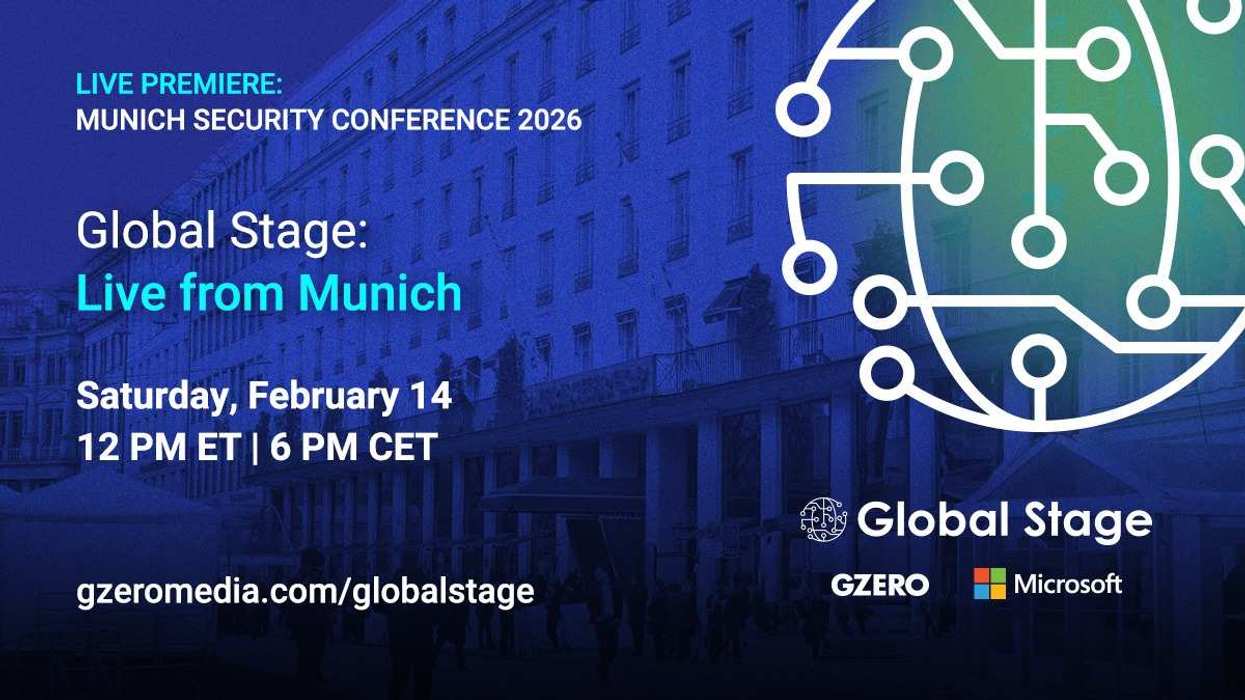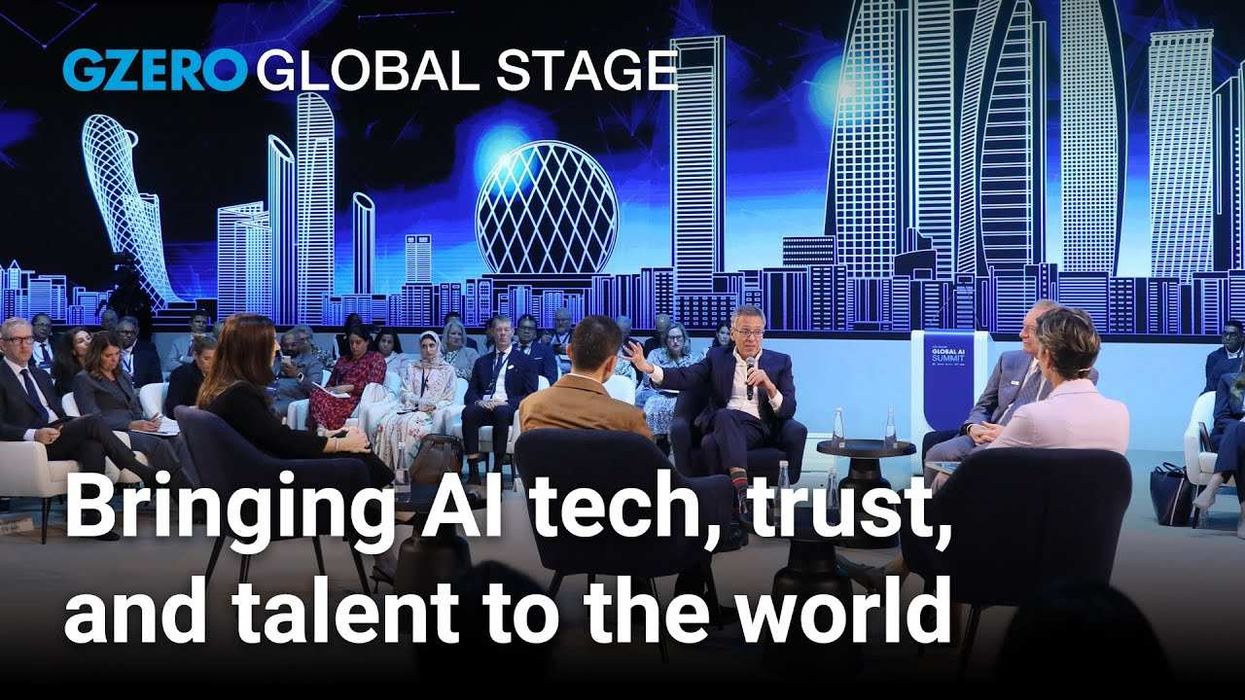While most of the world is still grappling with COVID, some countries — mostly wealthy ones with early access to vaccines — are thinking about preparing for the next pandemic. This sentiment ties into a wider debate about health security that was missing when the virus hit us all early last year.
Indeed, we should aspire to ensure the health security of our population instead of waiting for it to get sick, Flagship Pioneering CEO Noubar Afeyan said on June 9, during a live discussion, Stronger Partnerships for a Healthier World: Mutually Assured Protection — the second in GZERO Media's two-part discussion, Beyond the Pandemic: A Radical New Approach to Health Security, presented in partnership with Flagship Pioneering.
That'll only be possible with a level of global cooperation that remains absent even during the current pandemic, noted Eurasia Group and GZERO Media President Ian Bremmer. Right now, we seem to have learned nothing from COVID, he explained, citing the example of the US, which is more interested in investing on the tech that's on your smartphone to compete with China than in a system to help keep Americans safe from the next virus.
Also, it's too early to really talk about a global recovery when COVID is still ravaging so many parts of the world. For IMF chief Kristalina Georgieva, "a two-track pandemic means a two-track recovery" which will hold the entire planet back for years. She called for all countries to focus on vaccines as the cornerstone of their economic policies, and for rich nations to realize that helping poor ones recover is in their economic interest.
UK Health Minister Matt Hancock said that this week's G7 meeting comes at the perfect time for the world's wealthiest democracies, alongside a few like-minded friends, to make strong commitments on procuring vaccines for low-income nations and donating those they don't need right now. That's fine, but "don't commit to what you cannot achieve," remarked Agnes Binagwaho, Vice Chancellor at the University of Global Health Equity, who called out rich countries and multilateral organizations like the IMF for often not walking the talk on their pledges to the developing world.
Meanwhile, Moderna CEO Stéphane Bancel underscored that his goal is to end the pandemic in 2022, not later, and the best hope for that to happen is for governments to help vaccine makers get hold of scarce raw materials instead of demanding patent waivers. It was capital markets and not governments, he added, that Moderna got the money from to conduct the research into mRNA technology to develop COVID jabs in record time.
Other key moments of the program:
- US Navy Admiral James Stavridis (Ret.) on the importance of using military forces to deploy soft power, for instance on vaccine distribution logistics.
- President of Global Policy & Advocacy at the Bill & Melinda Gates Foundation Gargee Ghosh on how even enemy governments can collaborate on health, like the US and the Soviet Union did on a smallpox vaccine at the height of the Cold War.
- Geoff Martha, chairman and CEO of Medtronic, on whether or not we should nationalize certain parts of global supply chains to better deal with the next public health crisis.
- Procter & Gamble President of Global Home Care Sundar Raman on how experience in corporate partnerships applies to health security.
- Junaid Bajwa, chief medical scientist at Microsoft, on the looming shortage of doctors and other medical professionals that'll severely impact our capacity to respond to a public health crisis like a pandemic 10 years from now.
- Nestlé Health Service CEO Greg Behar on why we need a three-pronged — regulatory, government, and tech — proactive approach on health security partnerships.
- Amitabh Chandra, Director of Health Policy Research at the Harvard Kennedy School, on imagining a "parallel universe" in which Pfizer and Moderna had started developing COVID vaccines when the pandemic started, and why vaccine patent waivers are a "death sentence."
The first day of the series on June 8, Beyond the Pandemic: A Radical New Approach to Health Security, discussed what we could learn from COVID to prevent the next pandemic.
Learning from COVID to Prevent the Next Pandemic | GZERO Media Liveyoutu.be
This 2-day event was produced by GZERO Media in partnership with Flagship Pioneering. We thank our event partners, Partnership for a Healthier America and Medtronic.



















